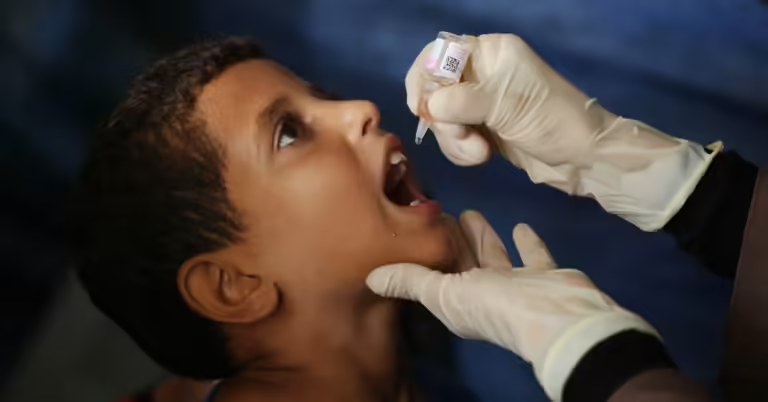Why are most cases of polio vaccine-derived variants?
Thanks to the success of the Global Polio Eradication Initiative, most cases of paralytic polio are now vaccine-derived. OPV has helped to nearly eradicate wild poliovirus around the world. However, in areas where vaccination rates fall and there are enough susceptible people, the weakened virus can replicate. Unfortunately, each round of replication increases the chance that the virus can revert to a form that causes disease and paralysis.
Why was the older oral polio vaccine shelved in 2016?
Since type 2 poliovirus was eradicated in 1999, the only cases of type 2 paralytic polio have been vaccine-derived. Therefore, to stop these cases, the decision was made to switch from the original trivalent OPV, which contains all three poliovirus serotypes, to a bivalent OPV vaccine that contains only poliovirus strains types 1 and 3. A type 2-specific monovalent vaccine that contains all vaccine-derived type 2 is also available in case cases do occur.
Was it a mistake, as some experts have suggested?
Although the decision was well-intentioned, hindsight suggests that it underestimated the levels of vaccine-derived poliovirus type 2. The Global Polio Eradication Initiative commissioned a report on the decision, and a draft report now open to public comment calls the switch to bivalent OPV a “total failure.”
What type of poliovirus vaccine is being used in the current campaign in Gaza?
More than 1.6 million doses of the new poliovirus vaccine, novel oral poliovirus vaccine type 2 (nOPV2), have arrived in the Gaza Strip to vaccinate more than 640,000 children under the age of 10 with two doses.
Does it pose the same risks as the traditional poliovirus vaccine, i.e. could it get into wastewater and cause more polio cases?
No, nOPV2 is the next generation version of the traditional monovalent type 2 oral polio vaccine used in response to outbreaks of vaccine-derived type 2 poliovirus. The key difference is that the new vaccine contains a weakened virus that has been modified to be genetically stable, making it much less likely to revert to a more virulent form that can cause paralysis, increasing the chances of stopping these outbreaks altogether.
Given that the vaccination campaign has been suspended, what other diseases could emerge in Gaza?
Vaccine-preventable diseases such as measles and pneumonia, as well as diarrheal diseases such as rotavirus, each carry their own risks and complications, which is why it is so important to get as many vaccines as possible to Gaza.

